Falling out of Love with Apple, Part 3
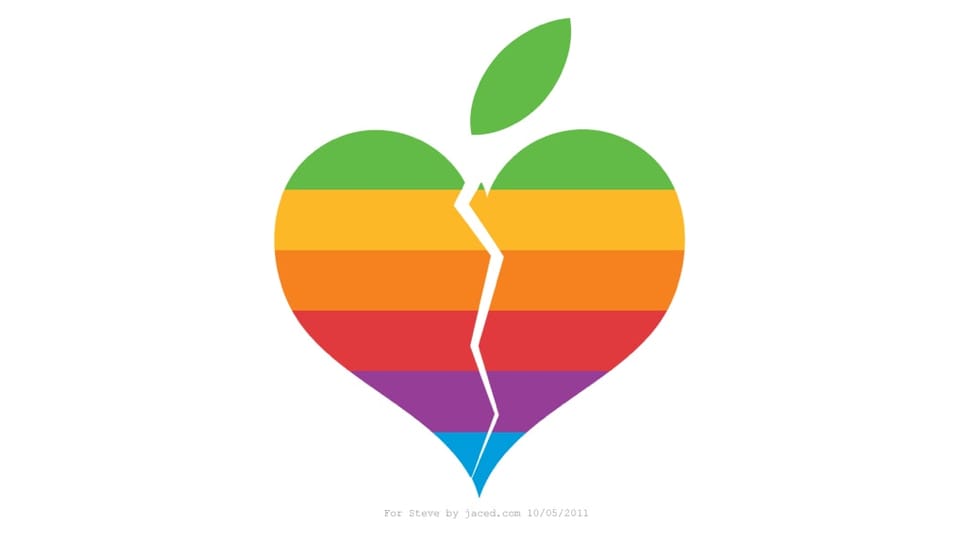
In this final post of a three-part series, we discuss how Apple's approach to content is an anticompetitive slippery slope.
In this final post of my “Falling out of Love with Apple” series, I’ll expand on my previous definition of hardware – I believe that hardware is, at its core, a delivery mechanism for software and content.
This fits perfectly with Jobs’ idea of a computer as a “bicycle for the mind.” A computer allows you to access a dizzying array of software applications, connected to the Internet, that deliver tools and content directly to the user. Jony Ive envisioned future iPhones as “a single sheet of glass.” Ive wanted the hardware itself to melt away and allow the user to focus on what truly matters – the content on the screen.
Apple became one of the world’s most valuable companies by enabling consumers to access the best software and content. With the Macintosh, Apple provided consumers with a powerful, easy to use computer on which they could easily install numerous high-quality software applications. With the iPod and iTunes, Apple provided consumers frictionless access to the world’s music. With the iPhone, iPad, and App Store, Apple provided an intuitive, secure way to find and install apps and consume content.
When you’re a two trillion-dollar publicly traded company, you need to continue generating revenue and growing each quarter. There’s really only two ways to do this:
- Sell more devices to more people
- Extract more revenue from your existing customers
Apple has done an especially great job at extracting more revenue from existing customers, with its Services revenue (which includes the App Store and content) representing over 20% of total revenue in the last three quarters. It’s easier for Apple to drive profits via services than it is from selling devices; gross margins for service revenue are approximately double that of devices.
As Apple gets bigger and bigger, its emphasis on making money through content is worrisome. That’s because Apple is competing with content providers on all sides, in categories like TV, games, and now even fitness. Apple is also now beginning to censor content in third party apps, with worrisome implications for free speech across the world.
These significant and growing conflicts of interest in content are causing me to fall out of love with Apple.
TV
Imagine if instead of making a deal with the record labels and rolling out the iTunes Store, Jobs had instead launched a competing music label. Apple may have been able to attract top artists, but it would never have made a transformational impact on music. The industry would have remained fragmented, with different music stores with different DRMs for each label. The seamless experience of iTunes and the iPod would have been impossible.
This hypothetical fragmented world looks a lot like the world of TV today. Every TV studio and production company seems to be launching its own app and/or streaming service. CBS All Access, Disney+, HBO Go, HBO Max, Hulu, Netflix, Peacock, Prime Video, Quibi (rest in peace), and now Apple TV+. And we’ve only scratched the surface.
Apple TV+ is directly competing with all of these existing streaming services, but Apple is giving themselves an advantage by bundling a free subscription with a device purchase and by advertising directly to users within iOS.
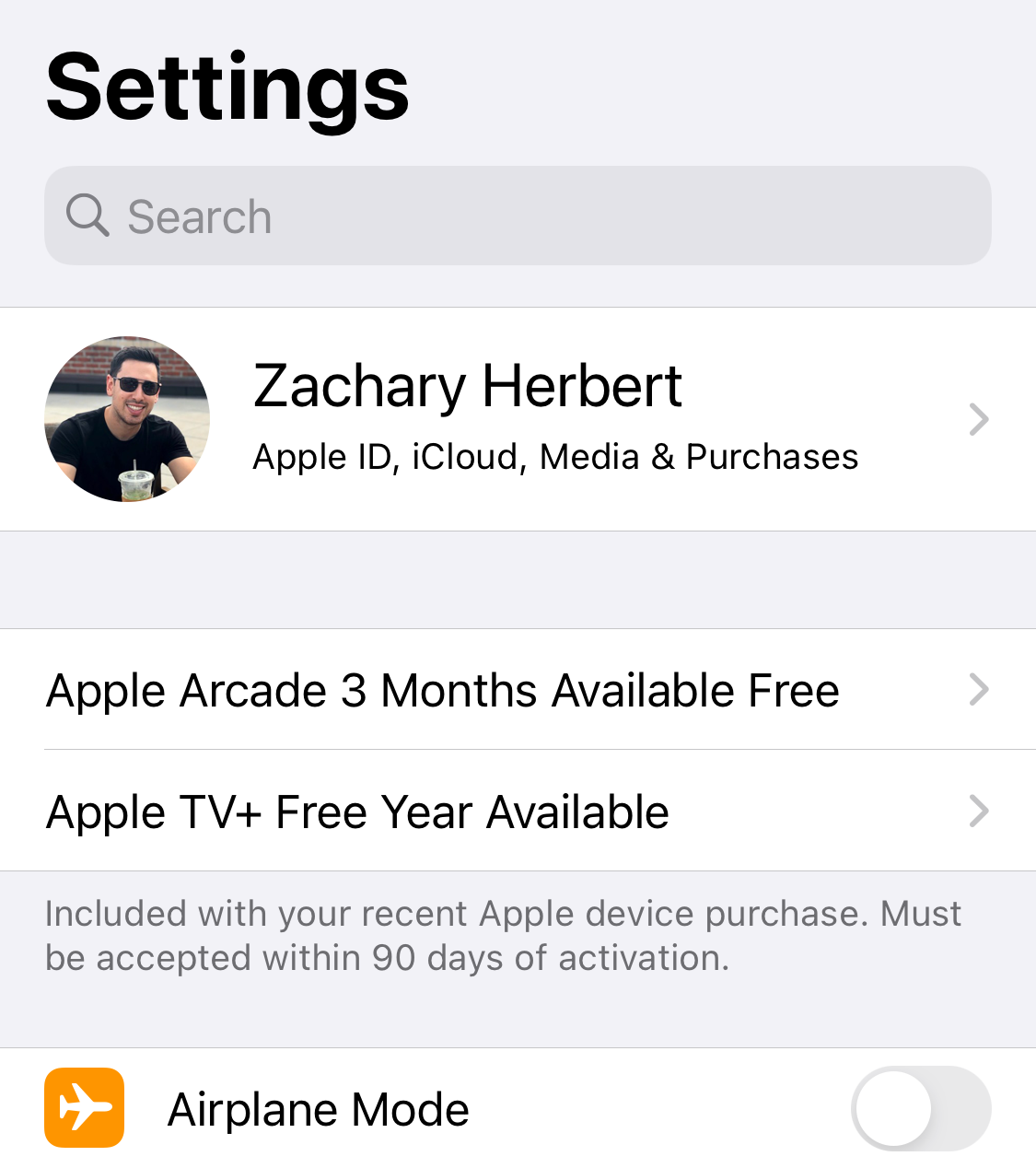
This worries me because Apple is playing by a different set of rules than the other content providers – Apple takes a cut of their revenue if subscriptions are facilitated in-app (unless you’re Amazon) and Apple does not bundle any of their apps with new iOS devices. But for TV+, Apple bundles the TV app in iOS and advertises directly to users within Settings and push notifications.
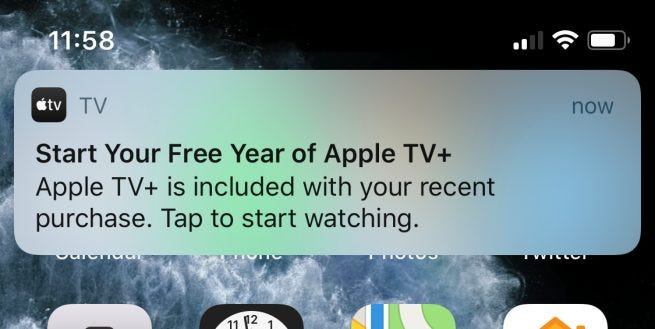
This is a slippery slope, and will cost Apple a lot of goodwill from TV studios and production companies over the coming years.
Games
Similar to TV+, Apple Arcade is competing directly with individual game developers and larger game studios. Apple Arcade offers a subscription gaming service that provides unlimited access to over 100 games.
In addition to advertising Apple Arcade within iOS settings (see picture above), Apple is actively fighting against companies like Epic Games who are seeking permission to offer their own game stores on iOS. Apple is also restricting companies like Microsoft from offering game subscription/streaming services on iOS.
There are ways around these restrictions, but they offer worse user experiences. Microsoft, for example, is turning to a browser-based streaming solution for its xCloud service. Epic Games fought back, causing Apple to remove Fortnite from the App Store – but Epic is now working with Nvidia to bring Fortnite back via a browser-based streaming workaround.
Forcing competitors to jump through more hoops directly benefits Apple, who seeks to push its users to subscribe to Apple Arcade and only make game purchases within the App Store. Apple is burning a lot of credibility with users and game developers, and Apple is restricting user freedom..
Fitness
I was very surprised by Apple’s new Fitness+ subscription service. Apple is now directly competing with numerous apps and companies offering virtual workout programs and fitness classes. This is further evidence of Apple’s shift from a platform to a content powerhouse.
I don’t think Fitness+ poses a challenge to companies like Peloton, but I sadly think that it will steal a lot of business from independent apps from individual fitness instructors, like the popular SWEAT app.
Music?
A year ago, I would have written that Apple is unfairly competing against music providers like Spotify. This still partially exists – for example, it’s impossible to set Spotify as a default music app, and Apple bundles their Music app with iOS. However, with the introduction of Spotify on Homepod, the ability to access Spotify via Siri, and native Spotifiy streaming now on Apple watch, I am less concerned about Apple’s approach to music.
Apple does, however, spam push notifications to iOS users in an attempt to get them to sign up for Apple Music. Spotify and others, of course, do not receive this special treatment.
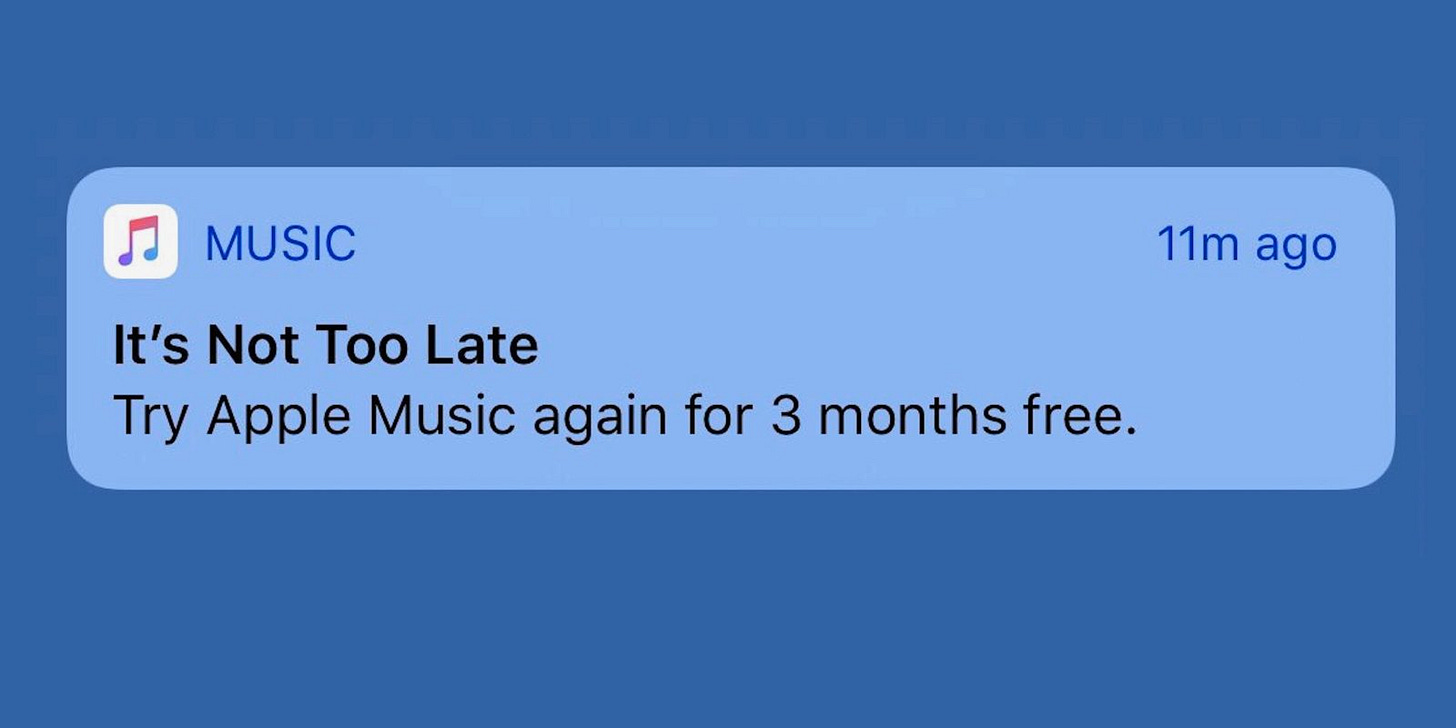
Censorship
Apple manages a global set of App Stores and cooperates with law enforcement in each jurisdiction in which it operates. In the USA, this is usually not concerning. But in oppressive regimes across the world, I find Apple cooperation with law enforcement extremely concerning.
In China, this involves cooperating with the Chinese government to remove apps – most recently over 47,000 games. This also involves storing Chinese user iCloud data in China-based data centers, to which the Chinese government can access at will.
Most troubling and surprising to me, however, is Apple’s recent involvement in targeted content censorship within apps. Two months ago, Apple requested that the popular Telegram app delete channels that citizens of Belarus were using to organize and track members of law enforcement.
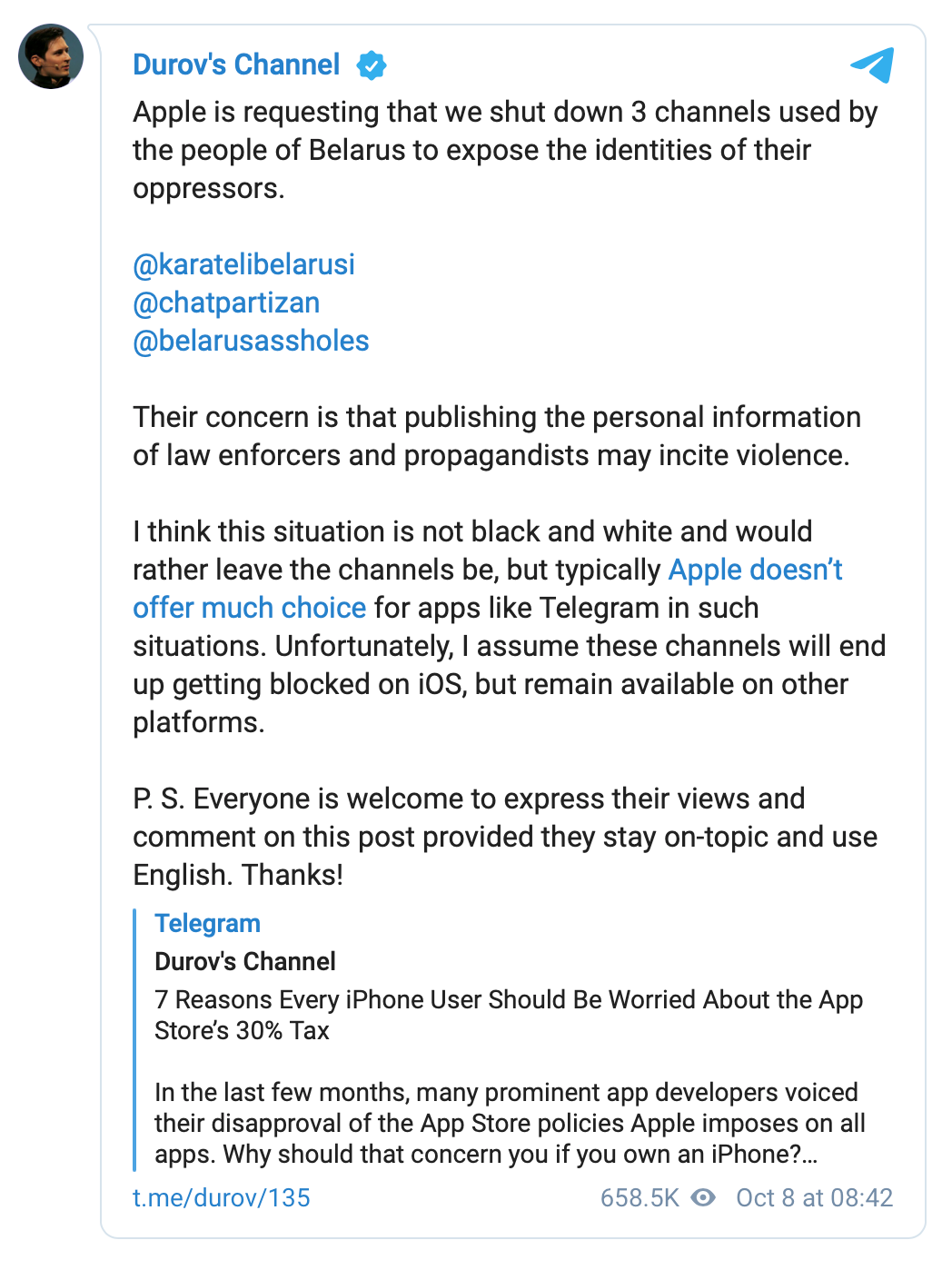
Apple confirmed this to Forbes and others:
Apple confirmed its requests that Telegram delete individual posts, pointing to its App Store rules for apps hosting user-generated content. They require those programs to provide systems for “filtering objectionable material,” “to report offensive content,” and “to block abusive users from the service.”
This is a massively slippery slope, and especially worries me as Apple operates in so many countries across the world. If oppressive governments are able to work with Apple to censor anti-government speech, Apple could end up playing a key role in suppressing democracy across the world.
I believe Apple should simply refuse to cooperate with oppressive governments – but this is an unlikely scenario, as they have extremely close ties and dependence to China, a current perpetrator of genocide against the Uyghurs.
Thank you for reading the last part of my “Falling out of Love with Apple” series! You can read the previous parts below:
Thanks for reading!